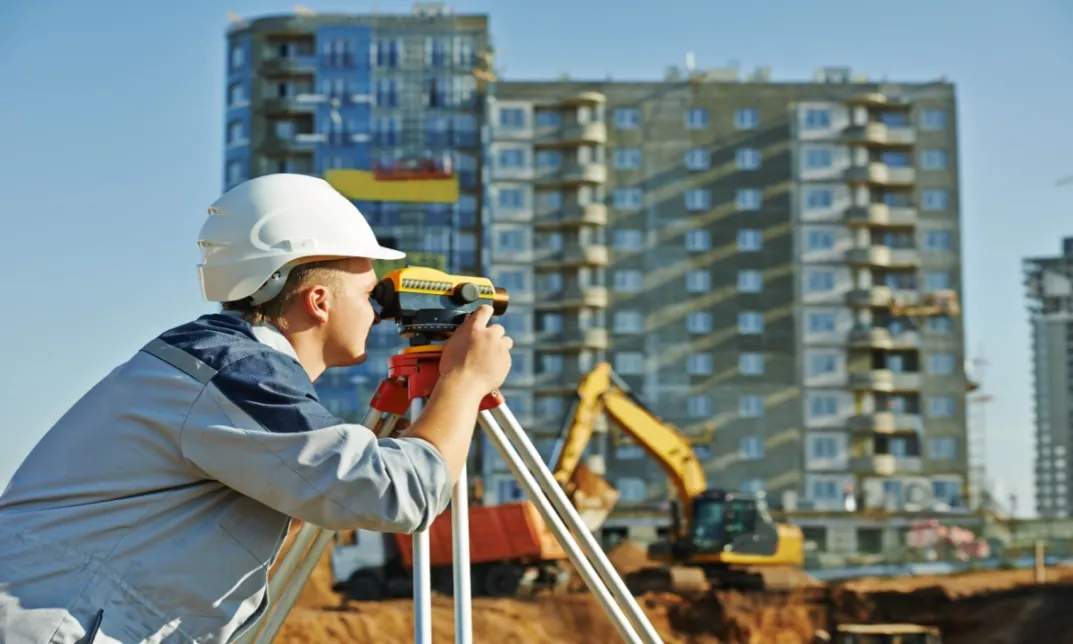Building surveys are like health check-ups for buildings. They help you see if a building is okay and if there are any problems you need to fix. When people want to buy or sell a building, they survey it to find out its shape. Surveys give important information about how strong the building is, if it’s safe, and what repairs it might need. So, they’re really important as they help you make good decisions and negotiate prices.

Importance of Building Surveys
Building surveys are crucial for property buyers because they offer several key benefits:
- Informed Decisions: They provide a clear picture of the property’s condition, detecting hidden problems that a simple viewing might miss. This lets you make informed decisions about the purchase, including potential negotiations or budgeting for repairs.
- Reduced Risk: By identifying potential issues early on, you can avoid unexpected surprises and significant expenses.
- Cost Transparency: Building surveys often include cost estimates for repairs. As a result, giving you a better understanding of the total investment required for the property.
- Peace of Mind: Knowing the actual condition of the property can significantly reduce anxiety and provide peace of mind when making such a major purchase.
In short, building surveys act as a safety net for property buyers, helping them make informed decisions and avoid costly surprises.
What Does a Building Survey Include?
The Royal Institution of Chartered Surveyors (RICS) is a global organisation that establishes qualifications and standards for land, property, and building. Generally, the RICS building survey inspects the property internally and externally. So, the following things are included in a property survey:
- Exterior: The surveyor will inspect the exterior parts of the property, such as roof, walls, windows, doors, foundations, drainage, and any outbuildings.
- Interior: The surveyor will evaluate the interior parts of the property, such as walls, ceilings, floors, stairs, plumbing, electrical systems (visual inspection only), and potential insulation efficiency.
- Overall Condition: The surveyor will assess the general state of the property, including any structural issues, signs of dampness, and potential movement in the foundations.
- Defects and Repairs: The report will detail any identified defects, their severity, and repair recommendations. It may also include estimated costs for addressing them.
- Maintenance Recommendations: The surveyor might suggest preventative maintenance measures to avoid future problems.
Types of Building Surveys
Building surveys come in various forms. It depends on the property’s age, type, and condition. The three main types of building surveys include:
Level 1: Condition Report
A Level 1 survey provides a basic overview of the property’s condition, highlighting any significant issues that require attention. Therefore, it is suitable for newer properties or those in good condition. Furthermore, it offers a snapshot of the building’s overall health.
Level 2: Homebuyer Report
A Level 2 survey is more detailed than a Level 1 report and is recommended for conventional properties in reasonable condition. It includes inspecting visible areas and highlighting any urgent defects or potential issues that affect the property’s value.
Level 3: Building Survey
A Level 3 survey, also known as a full structural survey, is the most comprehensive option available. It involves a thorough examination of all accessible parts of the property. Moreover, hidden areas such as roof spaces and basements are also examined. This survey is suitable for older houses, listed buildings, or those with serious structural issues.
What Sets a Structural Survey Apart from a Building Survey?
Both building surveys and structural surveys assess a property, but they target different aspects and serve distinct purposes. Here’s a table summarising the key differences:
| Feature | Structural Survey | Building Survey |
| Focus | Overall property condition | Structural integrity only |
| Professional | Building surveyor | Chartered structural engineer |
| Scope | Broad inspection, visual only | Deep inspection, may involve specialised tools |
| Report | Details defects, repairs, and cost estimates | Focuses on structural problems and solutions |
| Use Case | General due diligence for property buyers | Identifying and addressing serious structural concerns |
How Long Does a Building Survey Take?
A Building Survey might take between 4 and 8 hours to perform, depending on the size of the property. The report is usually finished within 3 to 7 business days. The timing will vary based on access and property size. Your survey report is likely to arrive via email 3-7 working days after inspection. However, you can have it mailed in some situations for an additional fee.
Benefits of Hiring a Professional for Building Surveys
A Building Survey is a very important step before buying and selling a property. But what happens when an unprofessional surveyor does the survey? Hence, the professional surveyor is the answer to this question. Moreover, there are different types of surveyors for different needs. The following benefits of hiring a professional surveyor include:
- Expertise and Experience
- Accurate Assessment
- Identifying Structural Issues
- Legal Compliance
- Risk Management
- Negotiation Power
- Peace of Mind
- Insurance Purposes
- Future Planning
How Much Does A Building Survey Cost?
The cost of a building survey in the UK can vary depending on several factors, including:
- Type of Survey: As discussed earlier, there are different levels of building surveys, with a basic condition report being the most affordable and a full building survey costing the most.
- Property Size and Value: Generally, more extensive and more expensive properties will incur higher survey fees.
- Surveyor’s Experience and Qualifications: More experienced or highly qualified surveyors may charge slightly more.
- Location: Building survey costs might differ slightly depending on the region in the UK.
Here’s a rough estimate for building survey costs in the UK (as of May 2024):
- Condition Report (Level 1): £300 – £900
- Homebuyer Report (Level 2): £400 – £1,200
- Building Survey (Level 3): £630 – £1,500 (potentially more for high-value properties)
Is A Building Survey Worth It?
One of the most common questions that arise when considering a building survey is whether it’s worth the investment. The answer often depends on several factors, including the type and age of the property and your circumstances. Moreover, the benefits of a building survey often far outweigh the initial cost. Although it represents an additional expense, its benefits make it a worthwhile investment for many buyers.
What is Building Survey: Closing Thoughts
In conclusion, a building survey is an important investment for any potential property buyer. It acts as a complete health check for your prospective home, revealing its strengths, weaknesses, and potential hidden problems. Moreover, this valuable information allows you to make informed decisions. By understanding the property’s condition, potential issues, and related costs, you can avoid unexpected surprises and negotiate with confidence. Furthermore, these will ensure you’re making a good financial investment in your future. Therefore, “Don’t let a dream home turn into a money pit” – consider a building survey as a major step towards a successful and secure property purchase.




